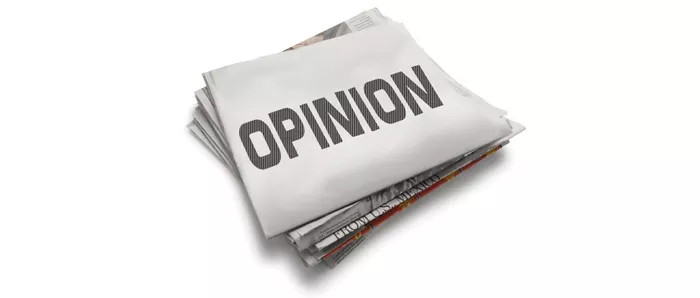
Of the 200,000 or so words in the English language, I have just a few favorites. These aren't words I use often. They are words that have the ear-appeal of a children's choir, words whose syllables feel as good as chocolate truffles on the tongue when you say them. "Felicity" is one. "Mellifluous" is another.
I assume carpenters have a favorite hammer, tennis players prefer one racquet to another, and pipe smokers return to a particular briar over and over again. It's no surprise, then, that scribblers like me have a handful of words they like better than all the rest. That is not to say that I rely on them or that I look for opportunity to use them. Just the opposite. The risk is that these words will suffer from too much attention, just like a spoiled child. The more they are limelighted, the less useful the words become no matter how intrinsically appealing they are. Take "awesome" for example. It used to be an adjective that described a jaw-dropping, awe-inspiring moment like the volcanic eruption of Mount St. Helens or the spectral light of the aurora borealis. Nowadays, "awesome" is so degraded that a Starbucks' triple, nonfat, no-whip white mocha is an "awesome" equivalent of Alec Baldwin's sendups of Donald Trump on Saturday Night Live. In like fashion, overexposure is eroding the status of "perfect." Mozart is perfect. Rafael Nadal's topspin forehands are usually perfect. Choosing french fries instead of cole slaw is not, even if the waitress chirps, "Perfect!"
A few years ago, somebody with time on his hands scoured the internet for others with time on their hands in order to pick the most beautiful word in the English language. The top vote-getter was "syphilis." Those who would contest the selection should try saying it aloud a few times. The F-sound in the first syllable complements the dominant sibilance such that "syphilis" slides off the tongue with a satisfying, serpenty hiss. Only "Sisyphus"—the name of the mythical, rock-rolling Greek—is more mellifluous.
The novelty of The Most Beautiful English Word still attracts internet traffic like chum. Dan Dalton, a BuzzFeed writer, has seined the Twittersphere a few times to net best-words and worst-words. One of his lists of beautiful words included syzygy—hard to pronounce but valuable in Scrabble—and iridescence, effervescence and incandescence. Evidently, four-syllable words with the "escence" suffix are as winsome as a rack of AR-15s at a gun show.
Dalton's collection of least-favorite words included a number of nouns relating to body parts—primarily female. "Orifice" was one. "Moist" was on the list, too. Last summer, "moist" showed up when Oxford Dictionaries launched a poll to find the worst English word. "Is there a particular word which has always made your blood boil?" they asked. "Does an everyday word sound horrendous to you?" More than 8,000 people weighed in. "Moist" was in the lead when the dictionary company pulled the plug "due to severe misuse." You can imagine the racist and misogynistic trolling that brought the fun to an abrupt halt.
"I was disappointed when the Oxford Dictionaries called off its search for the worst word in the English language before I got a chance to have my say," humorist Calvin Trillin wrote in The New York Times a few weeks later. He explained that he had long hated the word "maintenance" and the beady-eyed contractors and mechanics who trafficked in it. But it had been replaced by a word that visits dread on people his age— "upgrade." With tongue in cheek, Trillin imagines 20-something programmers scheming to upend the lives of tech-inept elders with successive software upgrades.
Thinking about the words you hate and the ones you favor? Then consider the fact that some words have connotative gender bias. Writing in The New York Times, Claire Cain Miller explains how the wording of a job listing can attract women and deter men and vice versa. Listings for such fast-growing, female-dominated jobs as home health aide and physician assistant used "sympathetic," "care," "fosters," "empathy" and "families." These words resonate with women, not men, Miller wrote. "Manage," "forces," "exceptional," "proven" and "superior" appeared in listings for male-dominated jobs. Changing these masculine words to gender-neutral ones—"'premier' instead of 'world-class,' 'extraordinary' instead of 'rock star' and 'handle a fast-paced schedule' instead of 'manage,'" Miller wrote—affects the outcome. Jobs are filled faster when the language is neutral. Still, "one of the biggest economic riddles today is why out-of-work men aren't pursuing the jobs that are growing the most," Miller noted. There must be a few guys around to mansplain why men shrink from so-called pink-collar jobs.
"Mansplaining" was coined in the late 2000s. It refers to a man who holds forth condescendingly to a woman about a subject he knows little about. Fourteen new words are coined in English each day. The neologisms of 2016 included "facticide," to kill or distort facts; and in 2015, "ammosexual," a person who loves firearms in a fetishistic manner. As new words gain currency, others fade away. Flirtatious young women are no longer referred to as fizgigs.
Words are the object of much attention lately. Orwell's dystopian novel, 1984, is suddenly an Amazon bestseller; NPR has decided to avoid "lie" and "liar" in its reporting; and politicians like Utah House Speaker Greg Hughes are taking heed. In defending Trump's facticidal administration, Hughes told The Salt Lake Tribune, "I try to be careful with my words"—words of wisdom in this Orwellian age.